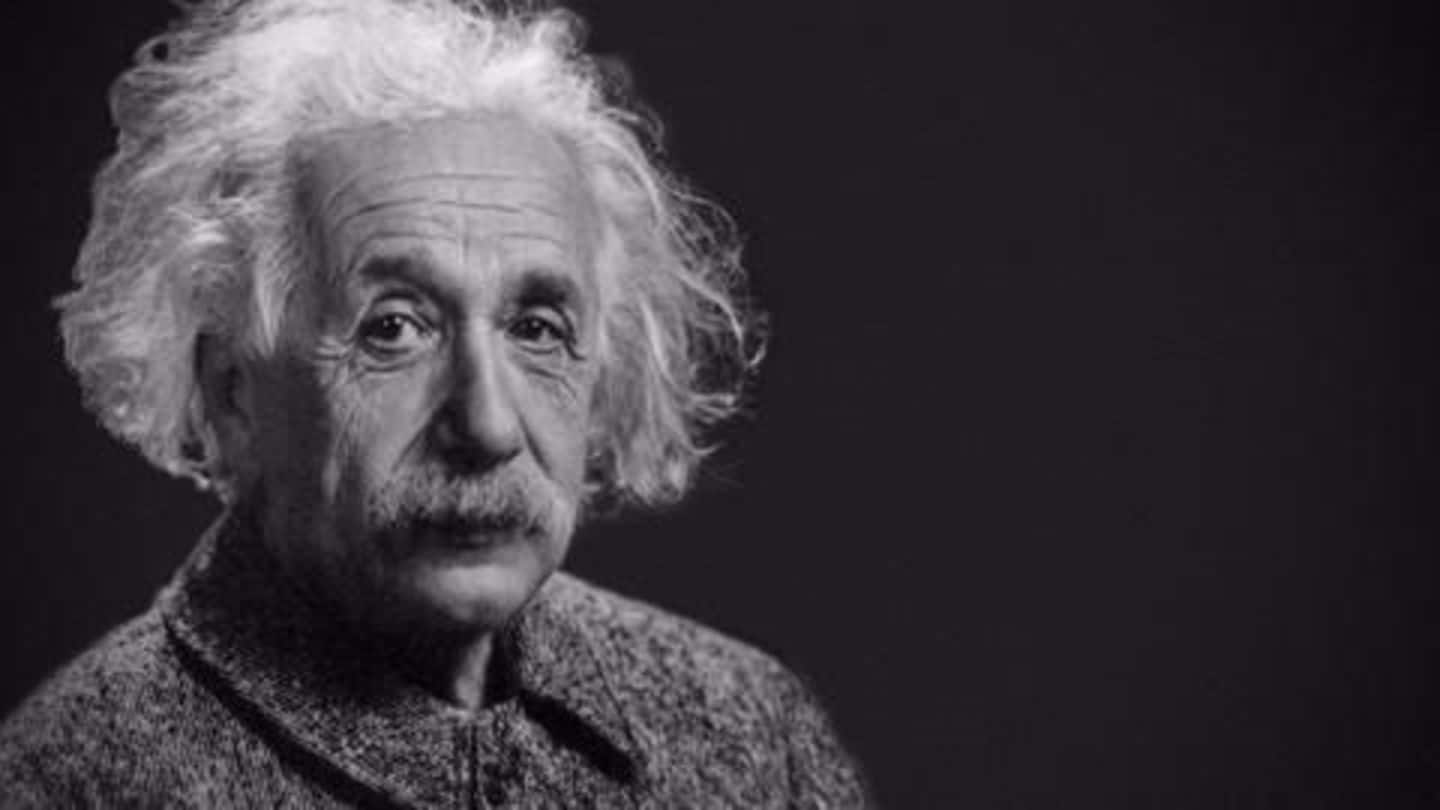
The eccentricities of Einstein: Could you learn something from them?
What's the story
Genius is not a result of genetics alone. What you do every day contributes significantly to your bodily development, including the brain's. In fact, latest research has found that the environment makes up for 40% of the difference between intelligent and non-intelligent people. Many great minds had their quirks, but probably none more so than Einstein (1879-1955), who developed his own weird habits.
Who?
Just to refresh your mind about what Einstein gave us…
Born in Germany, Einstein gave us the Theory of Relativity and contributed to Quantum Mechanics, both of which played major roles in the development of modern physics. He came up with the mass-energy equivalence formula (E=mc2), which is arguably one of the biggest achievements in science. In 1921, Einstein was awarded the Nobel Prize in Physics.
Sleep
Formula 1: 10-hour sleep and regular naps
Einstein supposedly discovered the Relativity Theory while dreaming. Whether it is true or not, but scientists discovered that in sleep, the mind can have groundbreaking-insights. In sleep, the brain enters Rapid Eye Movement (REM) and non-REM modes. About 60% is the latter. Every night, you have thousands of bursts in brain activity during non-REM sleep. More sleep means more such bursts, meaning greater 'fluid-intelligence'.
Do you know?
Fluid intelligence was bursting out of Einstein
Fluid intelligence determines an individual's ability to solve new and unique problems with insight and logic. It isn't related to other types of intelligence like memory. Not surprising, Einstein shunned formal education and vouched for never memorizing "anything which you can look up".
Walking
Formula 2: Three miles of walks everyday
While working at Princeton University, Einstein made sure he walked 1.5 miles everyday and back. During walking, one is likely to experience 'transient hypofrontality': the toning down of brain activity, particularly the frontal lobes. During this phase, the brain functions differently, increasing possibility of a 'eureka' moment that has eluded you otherwise. There's no conclusive evidence for this though.
Food
Formula 3: Spaghetti!
Einstein once joked that his favorite things about Italy were "spaghetti and (mathematician) Levi-Civita". The brain, which accounts for only 2% of body weight, consumes 20% of energy. However, it can't store energy, so it runs out when blood glucose levels drop. Spaghetti can help here, but in certain amounts. Forty strands give 25g of carbohydrates, but double that might impair ability to think.
Smoking!
Formula 4: Einstein loved his pipes
Einstein smoked pipes. A lot. In his defence, use of tobacco wasn't linked to cancer and other illnesses till after his death. We now know it stops formation of brain cells, leads to oxygen deficit in the brain, and more. But surprisingly, a study of 20,000 American adolescents found more intelligent children smoked more cigarettes, more frequently. An opposite trend was seen in UK.
Do you know?
Formula 5: No socks!
This is something we still have no clue about: Einstein didn't wear socks, since in his childhood, his "big toe always ends up making a hole in a sock". Research vouches for the opposite: casual outfits are linked to poorer performance on abstract thinking tests.
Others
The 'weird and crazy' wasn't limited to Einstein
It's not just Einstein though. Physicist Nikola Tesla had his toe exercises: according to author Marc J Seifer, Tesla would 'squish' his toes, 100 times for each foot, every night. he said it helped energize his brain cells. For Isaac Newton, celibacy was the keyword. Then there's Benjamin Franklin, America's Founding Father, who took naked 'air baths': stripping and exposing himself to air.